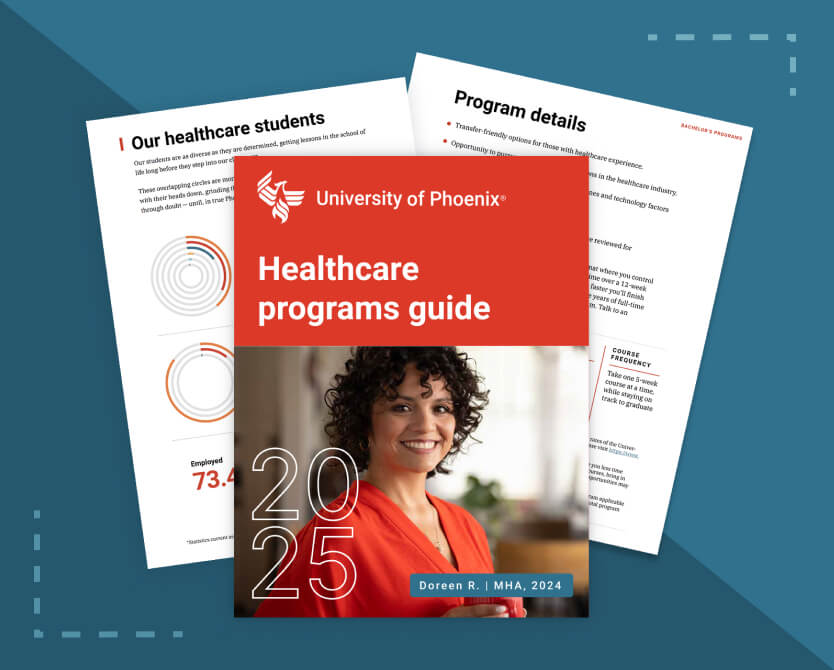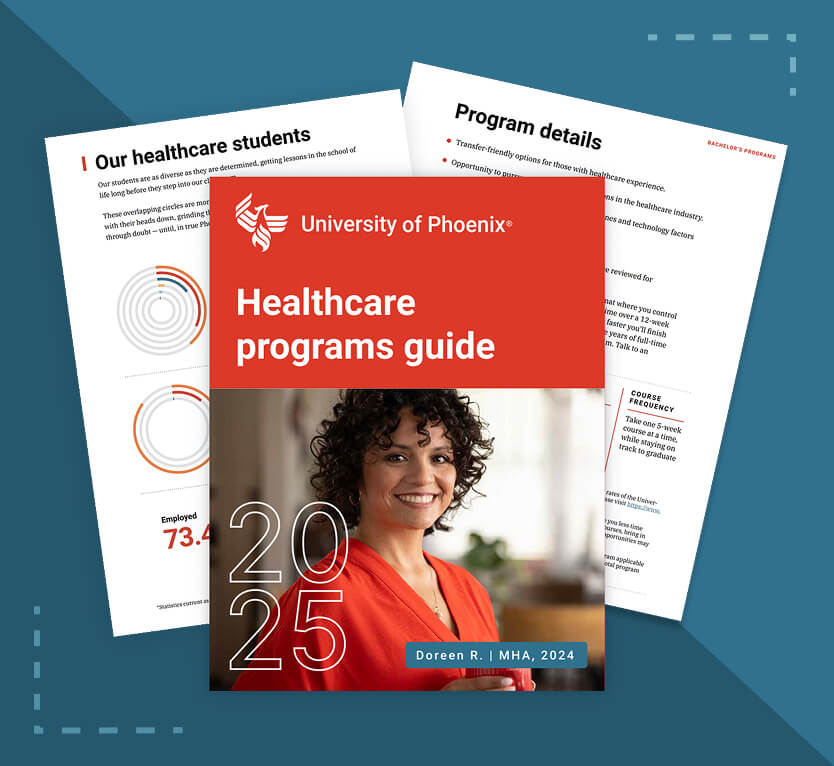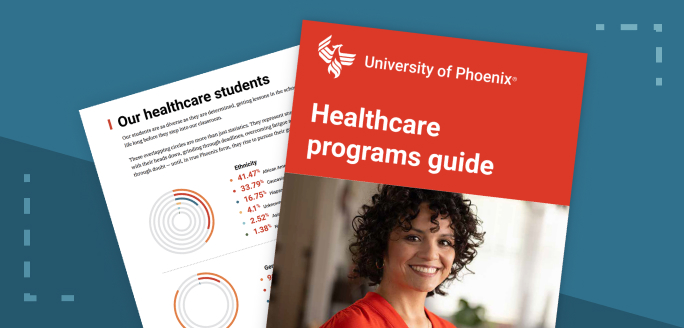Articles > Healthcare > How to become a hospital administrator
How to become a hospital administrator

Written by Michael Feder

Reviewed by Mark Jóhannsson, DHSc, MPH, Dean, College of Health Professions

A hospital administrator, also referred to as a medical and health services manager, is a key part of the success of any hospital or medical facility. These professionals, though rarely seen by patients, are responsible for managing the day-to-day operations of a medical facility.
These administrators work every day to oversee staff, improve the quality of patient care, manage professional development opportunities and more. For those interested in becoming a hospital administrator, it is important to understand the education and experience that is often needed for this role.
What does a hospital administrator do?
A hospital administrator works to create an environment where medical professionals have the skills and resources they need to monitor and ensure compliance with state and federal healthcare regulation. Their duties differ day to day, and an administrator might specialize depending on their work environment. A hospital administrator typically focuses on the management of staff and patient care.
Examples of an administrator’s duties include:
- Completing performance reviews for doctors and nurses
- Planning professional development opportunities for hospital staff
- Scheduling the shifts of doctors, nurses, aides and other staff
Education requirements
According to the U.S. Bureau of Labor Statistics (BLS), health service managers typically need a bachelor’s degree in health administration or a related field, like business administration or nursing. BLS notes, however, that education requirements may vary by employer. While a bachelor’s degree is typical, a master’s degree may be preferred by some hospitals or healthcare facilities. At others, an associate degree may be required or work experience in an administrative role can suffice.
A college degree in health administration can help students learn important business-related topics, such as medical terminology, the fundamentals of electronic health records, healthcare ethics and other necessary work functions. An understanding of how to provide healthcare is important to the position, which can be learned in a healthcare degree program.
Additionally, health services managers are often responsible for the business aspects of the company, such as accounting, budgeting and financial management. Business courses usually teach such skills.
Individuals with work experience and education in nursing or other medical administrative or clinical roles might be able to shift their career path to hospital administration as well. Registered nurses (RN) with experience working as nursing home administrators or other roles, like a medical records specialist or administrative assistant, might have skills that apply to this career path.
Industry certifications and advanced degrees
BLS reports that some states may require a state-issued license to work in this field. Additionally, some employers may also require that medical services managers be licensed as an RN or a social worker. That said, industry certification may not be a requirement for this role.
Advanced degrees and certifications can help when pursuing higher-level administration positions. For example, a master’s degree in healthcare administration shows a level of knowledge and expertise in your chosen field. This level of expertise can help provide opportunities to take on more responsibilities or higher-level roles in healthcare administration.
Salary and job outlook
As of May 2023, medical and health services managers earned an annual wage between $67,900 and $216,750, with a median of $110,690, according to BLS.
Employment of medical and health services managers is projected to grow 29 percent from 2023 to 2033, much faster than the average for all occupations. About 61,400 openings for medical and health services managers are projected each year, on average, over the decade.
Between the possible earnings and the projected growth of the field, aspiring administrators are entering the workforce at an opportune time.
Salary ranges are not specific to students or graduates of University of Phoenix. Actual outcomes vary based on multiple factors, including prior work experience, geographic location and other factors specific to the individual. University of Phoenix does not guarantee employment, salary level or career advancement. BLS data is geographically based. Information for a specific state/city can be researched on the BLS website.
BLS Occupational Employment Projections, 2021-2031 is published by the U.S. Bureau of Labor Statistics. This data reflects BLS’ projections of national (not local) conditions. These data points are not specific to University of Phoenix students or graduates.
Gaining experience in healthcare administration
While education, such as earning a bachelor’s or master’s degree in healthcare administration, is helpful, aspiring administrators should also seek out opportunities for on-the-job experience.
Work experience allows healthcare professionals to use skills learned in a practical setting. The practical application of these skills can lead to increased proficiency and potentially new career opportunities.
Internships and entry-level positions
Internships in hospitals, nursing homes and medical clinics are one way to gain valuable work experience.
Aspiring administrators can also seek out entry-level positions as administrative assistants, medical billing specialists, nursing assistants and community health workers. These entry-level positions teach valuable skills and provide networking opportunities.
Developing essential skills
Administrators need to develop a variety of skills to succeed in their jobs and best serve
the patients who come to their facilities seeking help. Skills necessary for hospital administration include:
- Leadership: Hospital administrators work directly with hospital staff, providing performance reviews, guidance and professional development.
- Communication: Administrators need to communicate with healthcare providers and hospital leadership to provide a top-notch patient experience.
- Critical thinking: Administrators need to be able to solve problems quickly and effectively.
- Compassion: Patients are often stressed because they are unwell or unhappy with financial costs among other reasons. Their families might also be stressed. Doctors and nurses are stressed because of the demands of their jobs. Administrators need to be compassionate and kind to everyone they come across to provide a positive healthcare experience for all involved.
Each of these skills can be developed through education and relevant work experience. By taking the time to hone these skills, hospital administrators can better serve the hospital staff and patients in their care.
Networking
Networking can be useful for aspiring healthcare administrators, especially when looking for open positions. Many other benefits of networking are well-documented and worth the effort.
Opportunities for upskilling
Within the field of healthcare administration, there are plenty of opportunities to develop new skills. There are several ways to upskill, including:
- Seeking mentorship: Take the time to learn from and develop professional relationships with fellow administrators at a current worksite or area. Learn from their experience.
- Continuing education: Earning certificates and advanced degrees can improve knowledge and skills in healthcare administration.
- Taking on leadership roles: If a leadership role becomes available, use it as an opportunity to grow as a leader and showcase leadership skills.
Some hospital administrators enhance their careers by specializing in fields such as healthcare information technology. Others pursue high-level executive positions within hospitals, nonprofit organizations and other companies.
Challenges and rewards
A career in hospital administration, as with other careers in the healthcare system, comes with challenges and rewards.
Working in a hospital can be a demanding, high-stress career. Administrators may find themselves acting as the intermediary between healthcare providers and hospital leadership.
However, with stress comes rewarding experiences too. Hospital administrators can make a difference in patient care every day. By improving patient care and creating a worthwhile working environment for healthcare providers, administrators can help change lives.
Explore hospital administrator degree programs
If you’re interested in learning more about a career as a hospital administrator, University of Phoenix (UOPX) has degree programs that can help you learn skills for this career path, including an online healthcare administration degree, an online health management degree, an online master of health administration and the online healthcare administration master's degree with a concentration in compliance and privacy
Contact a University of Phoenix representative for more information.
Watch What Can You Do with a Healthcare Administration Degree?

ABOUT THE AUTHOR
A graduate of Johns Hopkins University and its Writing Seminars program and winner of the Stephen A. Dixon Literary Prize, Michael Feder brings an eye for detail and a passion for research to every article he writes. His academic and professional background includes experience in marketing, content development, script writing and SEO. Today, he works as a multimedia specialist at University of Phoenix where he covers a variety of topics ranging from healthcare to IT.

ABOUT THE REVIEWER
Mark Jóhannsson is the Dean of the College of Health Professions. He has a career spanning over 35 years of healthcare management, public health practice, higher education administration, teaching and clinical/behavioral research within corporate, community and academic settings. He has served as both an educational and keynote speaker, and he has been published in a variety of peer-reviewed and periodic literature.
This article has been vetted by University of Phoenix's editorial advisory committee.
Read more about our editorial process.




Get your free Healthcare programs guide
Explore our healthcare degrees and certificates - 100% of our programs are aligned to career-relevant skills.
You’re making moves!
This guide is loaded with answers. Download it now or get it from your inbox. Questions? We’re just a call or click away.
Get your free healthcare programs guide. Please enter your first and last name.


